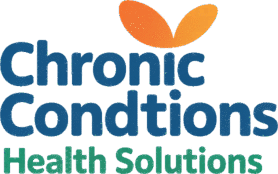
Exercise not only transforms your body but also uplifts your mind and spirit. Are you ready to discover how embracing physical activity can empower your journey towards better health? Let's delve into the key takeaways from understanding exercise physiology in managing chronic conditions.
Tailored exercise interventions can significantly improve health outcomes for individuals living with chronic illnesses. This visual highlights key benefits and the importance of professional guidance.
Understanding the role of exercise physiology in managing chronic conditions is crucial for anyone looking to improve their health outcomes. At Chronic Conditions Health Solutions, I’ve seen firsthand how tailored exercise interventions can empower those living with chronic illnesses. By understanding how our bodies respond to exercise, we can create effective strategies to enhance well-being and manage symptoms.
Exercise physiology is essentially the study of how physical activity affects the body. It focuses on the body's responses and adaptations to exercise, particularly in individuals with chronic conditions. This field is pivotal as it provides the foundation for developing personalized exercise programs that consider each individual's unique needs. For those interested in how exercise specifically benefits heart health, explore our article on Exercise Physiology and Heart Health.
Exercise physiology plays a vital role in managing chronic diseases by employing evidence-based practices to tailor fitness programs that cater to specific health conditions. By focusing on individual capabilities and limitations, we can design interventions that are not only safe but also effective in improving overall health. The understanding of how exercise impacts various systems in the body leads to better outcomes and enhanced quality of life.
In my experience, effective management of chronic conditions begins with understanding how exercise can positively influence these areas. Tailoring programs to fit individual capabilities ensures that each participant feels empowered and supported on their wellness journey.
Exercise offers a myriad of benefits for those dealing with chronic conditions. Not only does it improve physical health, but it also enhances mental well-being. Regular physical activity can help mitigate symptoms and improve the overall quality of life. Some of the key benefits include:
As someone dedicated to nurturing health through exercise, I often emphasize that these benefits can transform lives. By engaging in regular physical activity, individuals can reclaim control over their health and well-being. For deeper insights into managing chronic illnesses, consider how stress management for chronic illness can complement your exercise routine.
Physical activity profoundly impacts chronic conditions, both physically and mentally. For instance, individuals with diabetes can improve their blood sugar levels through structured exercise regimens. Similarly, those with arthritis often find relief from joint pain and stiffness by incorporating movement into their daily routines.
As I guide clients at Chronic Conditions Health Solutions, I focus on the profound connection between regular exercise and the management of chronic conditions. These insights are foundational in designing sustainable exercise programs that promote long-term health benefits.
Regular exercise not only aids in managing chronic diseases but also has a significant role in preventing them. The comprehensive health benefits can include:
Incorporating these benefits into your lifestyle can be a game-changer. At Chronic Conditions Health Solutions, I strive to inspire individuals to embrace exercise not just as a task, but as an essential part of a fulfilling life. Remember, every step taken is a step towards better health!
To maximize the benefits of exercise for chronic condition management, consider incorporating a mix of aerobic, strength, and flexibility exercises into your routine. This balanced approach can enhance your overall fitness, improve physical function, and reduce symptoms associated with your condition. Remember, consult with a healthcare provider to tailor your exercise plan to your specific needs!
Every journey towards better health begins with a single step! If you're new to managing chronic conditions, it can feel overwhelming at times. However, the most important thing is to acknowledge that taking that first step is a significant achievement. Whether it's incorporating a few minutes of movement into your day or making healthier food choices, celebrate those small victories! Here are some tips to get you started:
These initial steps can pave the way for long-term health improvements. Remember, even the most seasoned athletes started somewhere—embracing your journey is essential!
As someone who has dedicated my career to helping individuals manage chronic conditions, I understand that the first step can be the hardest. It’s common to feel unsure about where to begin. I encourage you to focus on small, manageable changes rather than overhaul your entire lifestyle at once. This might mean choosing to take the stairs instead of the elevator or going for a 10-minute walk. Every bit of movement counts!
Engaging in physical activity is not only beneficial for your body but also for your mind. Have you ever noticed how you feel after a walk? It's an immediate boost in mood and energy! Taking the first step towards regular exercise can lead to a rewarding cycle of motivation and positive health outcomes. For more guidance on managing chronic conditions, see our post on Living Well With Chronic Conditions.
When embarking on your health journey, seeking out professionals like those at Chronic Conditions Health Solutions can provide invaluable support. Personalized guidance from an expert can help tailor exercise plans that fit your unique needs and conditions. It’s crucial to connect with professionals who understand chronic diseases and can offer evidence-based advice.
Consider asking yourself these questions:
By involving healthcare professionals, you can ensure that your approach is safe and effective, maximizing your chances of success!
Tracking your progress is crucial to understanding how your body responds to exercise. This isn't just about the numbers on a scale; it's about holistic health improvements. Keeping a journal or using an app can help you monitor not only your physical activity but also your mood, energy levels, and overall well-being.
Consider the following ways to evaluate your health outcomes:
As you track your journey, you may find that your commitment to exercise translates into improved health outcomes, creating a strong motivation to continue moving forward!
One of the most empowering aspects of your health journey is finding a community that supports your goals. At Chronic Conditions Health Solutions, we offer resources and connections to groups focused on chronic condition management. Engaging with others who share similar experiences can provide encouragement and motivation. You’re not alone on this journey!
Here are some ways to build your support network:
These connections can help you stay motivated and accountable, making your journey towards better health feel less daunting.
Now is the time to take action! I encourage you to take that first step towards a healthier you. Whether it’s reaching out for professional guidance, joining a supportive community, or simply going for a walk, every action you take is a step in the right direction.
Remember, at Chronic Conditions Health Solutions, we are here to support you every step of the way. If you have any questions or need assistance in creating a personalized plan, don’t hesitate to reach out. Together, let’s embark on this journey towards improved health and well-being!
Here is a quick recap of the important points discussed in the article:
Exercise physiology is the scientific study of how the body responds and adapts to physical activity, especially in individuals with chronic health conditions. It provides the foundation for creating safe and effective personalized exercise programs.
It tailors fitness programs to individual health needs, improving cardiovascular health, enhancing insulin sensitivity, promoting joint flexibility and strength, boosting mood, reducing anxiety, and ultimately enhancing overall quality of life.
Key benefits include increased energy levels, better weight management, enhanced mobility, improved mental health, reduced risk of complications, strengthened immune system, and better sleep quality.
Yes, but it's crucial to consult with a healthcare professional or an exercise physiologist before starting any new exercise regimen. They can help design a plan that is safe and effective for your specific condition and limitations.
Beginners should start with small, manageable changes, set realistic goals, choose enjoyable activities, track their progress, and be patient. Seeking personalized guidance from professionals and building a support network can also be very helpful.
At Chronic Conditions Health Solutions, we're dedicated to transforming chronic disease management through personalized exercise physiology and evidence-based lifestyle interventions. Dr. Emilia Carter and our team empower you to achieve better health outcomes and a more fulfilling life. Your well-being is our priority.
